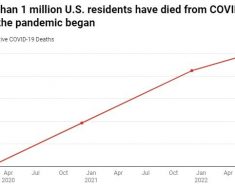
When I was furloughed from my job in a theatre in March, my mental health plummeted.
At first, the idea of being paid to stay home seemed too good to be true. While my self-employed friends panicked about their rent, I felt lucky to be eligible for a monthly income from the Coronavirus Job Retention Scheme and to be able to live at home with my parents.
Although I’m extremely aware of how privileged I was to be in this position, the reality of everything I had worked for creatively being taken away left me feeling low and scared for my future – my income from jobs in the film and modelling industry had been cancelled, and I had to put my own film on halt.
After trying to find work elsewhere and receiving over 50 job rejections, my anxiety skyrocketed. I spent weeks feeling like it was getting out of control so, finally, I decided to spend my furlough money on therapy.
Visit our live blog for the latest updates Coronavirus news live
I’ve always been an anxious person, but have often felt in denial about my mental health and have dismissed opportunities for further help. My school reports from the age of four described me as ‘attached’ and ‘demanding constant praise and encouragement’.
As I’ve grown older, I’ve tended to feel conflicted. I worry obsessively about what others think of me, find it easy to get trapped in ‘people-pleasing’ mode and resent myself for constantly second-guessing my gut instinct. Needless to say, the pandemic largely added to that list – being sat at home during lockdown with no work, ruminating over my thoughts, felt like hell.
I couldn’t relax; the silence, the joblessness, the anxiety around trivial things, was sending me into a hopeless spiral. I went into overdrive trying to stay productive, but it didn’t make a difference.
I was aware of the strain on the NHS and the length of their talking therapies waiting lists so, in desperation, I started researching private online therapy – I didn’t want to exhaust a free service when I was lucky enough to have a furlough allowance.
I eventually found a therapist I liked, but £50 per hour seemed like a lot of money and I was worried about wasting the funds I did have. Was I being frivolous or was this an empowering step to prioritising my mental health? I wondered if I could get through this by myself without professional help.
The company I found offered another free session if the first didn’t work out, which convinced me to at least try. I booked the next available appointment for the following morning.
I’ll be honest, the initial meeting mainly consisted of me sobbing about a lifetime of anxieties and self-deprecation. Through the tears, I told my therapist how mundane things were stressing me out, and how pathetic and unable to cope I felt.
By the end, my therapist had explained that I displayed ‘anxiously attached’ characteristics. Having researched this since, it’s extremely accurate and accounts for the majority of my anxiety.
She helped me to understand my lack of boundaries and how my anxiety stems from pressure I put on myself to be liked and seem ‘successful’; when I feel people holding back, my instinct is to try harder to please. It’s an impossible strategy, particularly during the course of this pandemic.
I started seeing my therapist once a week, which cost £200 per month, and my decision to take control of my future and health meant that I felt better than ever. I have learned to make more positive decisions and be kinder to myself; in turn, I have noticed my anxiety starting to decrease.
Therapy has also taught me better ways of communication, which means I’ve been able to rekindle relationships with family members – something over and above what I thought it could ever give me.

And I have encouraged some friends and family to get help, too. Almost everyone I know has been affected by the pandemic in some way; either grieving the death of loved ones, losing jobs, being furloughed, or going through breakups.
According to their analysis of NHS data, the mental health charity Mind have found that more people in the UK have experienced a mental health crisis during the coronavirus pandemic than ever before, with the highest number of people on record needing urgent and emergency referrals in June and July this year.
The price can be prohibitive but there are low cost options and many therapists have taken the impact of the pandemic into account when charging their clients in lockdown. Even so, I know that I am one of the lucky ones who can afford to pay for professional help. With NHS services stretched, one in four people are still unable to access NHS support.
More has to be done for those who need therapy but can’t access it. The government should be offering therapy grants to those who aren’t able to afford it, so they are still able to access help. I also believe that ‘paying proportionately to your salary’ should be considered by some therapists in order to help support others with a lower income.
More could be done by employing in house therapists within businesses too, so that employees can accesses help within their own company.
And helplines such as Samaritans, Mind and Papyrus are absolutely incredible and must be properly funded in order to keep them going. It’s important that people are aware of them as options so they can reach out.
The decision to throw myself into my own wellbeing has genuinely changed my life and made me recognise what I can do to help support others in turn.
Sometimes you just need the reassurance of being told that ‘you’re okay as you are’ and, to me, that’s something everyone should have access to.
Need support? Contact the Samaritans
For emotional support you can call the Samaritans 24-hour helpline on 116 123, email [email protected], or go to the Samaritans website.
MORE : As a mental health social worker, I see the toll Covid-19 is taking
MORE : Lockdown will bring more mental health crises, so where is the Government support?
MORE : Male mental health is a ticking time bomb, especially for BAME men
Source: Read Full Article





